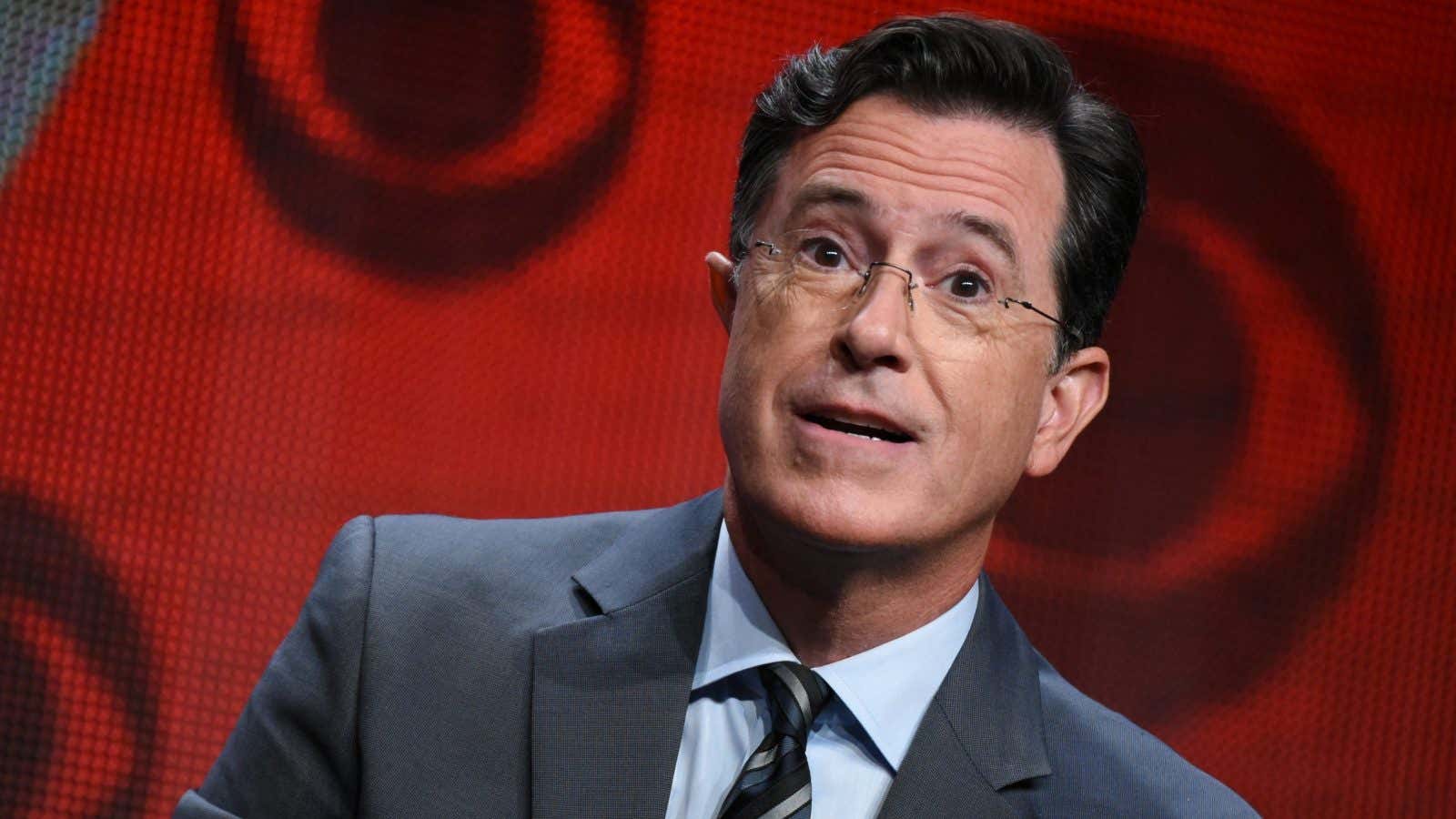Comedy is what standup comedian Lynn Harris describes as the “ultimate outsider art,” which is why it’s always been odd to her that white men dominate the genre. “One engrained definition of comedy is that it’s used to punch holes in power,” says Harris, who started a company aimed at developing female comedic talent. “So why aren’t the people who have the least power in charge?”
Stephen Colbert, host of the CBS comedy show The Late Show with Stephen Colbert, is intent on answering this question.
White men have ruled late-night comedy on American television since the medium was invented. But as racism and sexism dominate the headlines—including those coming out of the White House—diversity in entertainment (and all industries) is more essential than ever. Colbert discussed this disconnect during a recent TimesTalks conversation with Sopan Deb, a culture reporter for the New York Times.
Upon launching The Late Show in September 2015, Colbert says he thought about gender and racial diversity in the writers’ room “very specifically.”
“I had been very frustrated at the old show,” Colbert told Deb, referring to the show he previously hosted, The Colbert Report, which aired on Comedy Central from 2005 to 2014, ”about my inability to find diverse candidates for the show. And it was late in that show that I came to realize that it was my naiveté thinking that … the usual process would get you the unusual room.”
Colbert says that his search for diverse talent didn’t truly progress until he quite literally asked recruiters and agents to stop sending him anyone besides women:
“We would say, you know, it’s very important, we want writers of color, we want women, and you would get 150 packets and there would be eight women. And we’re like, ‘God, that’s so frustrating.’ Until I said, ‘No, only women’—then I got 87 women. And I thought, ‘Where were these people before?’ And that was sort of the realization of my naiveté, that it’s not enough to say you want it, you have to go to the not-ordinary step.
I think there’s thankfully some changes going on in the way women are perceived by the agents and managers and sort of word of mouth in the comedy world. But we realized we had to take an extraordinary step to get an extraordinary room. And now it’s half, you know, half white guys and a half either women or writers of color.”
Colbert’s “extraordinary step” to elevate female applicants is a profound act of allyship, on par with his outspoken disapproval of his boss, CBS chief executive Les Moonves, who was accused of sexual harassment by multiple women who said his behavior dated back decades.
Until 1964, sexual harassment wasn’t considered a fireable form of sex-based discrimination under the US constitution. As the #MeToo Movement demonstrates, sexism and racism continue to ravage women’s professional opportunities, confidence, and upward mobility in every industry.
It’s nice to see men like Colbert acknowledging the need for women to make up lost ground, and comedy is terrific place to start. After all, teaching girls to perform and be funny, and providing them with female comedians as role models, is a feminist act. It’s a way for women to literally narrate their own experience—and there’s no better form of control than that.
As decades of diversity efforts have illustrated, shifting deep-rooted power dynamics is no easy feat. Perhaps the answer is to blow up the molds. Drastic as it may seem to only consider applicants of one gender or race, such has been the case in favor of white men for centuries. It’s high time to flip the script until the rest of us catch up.
